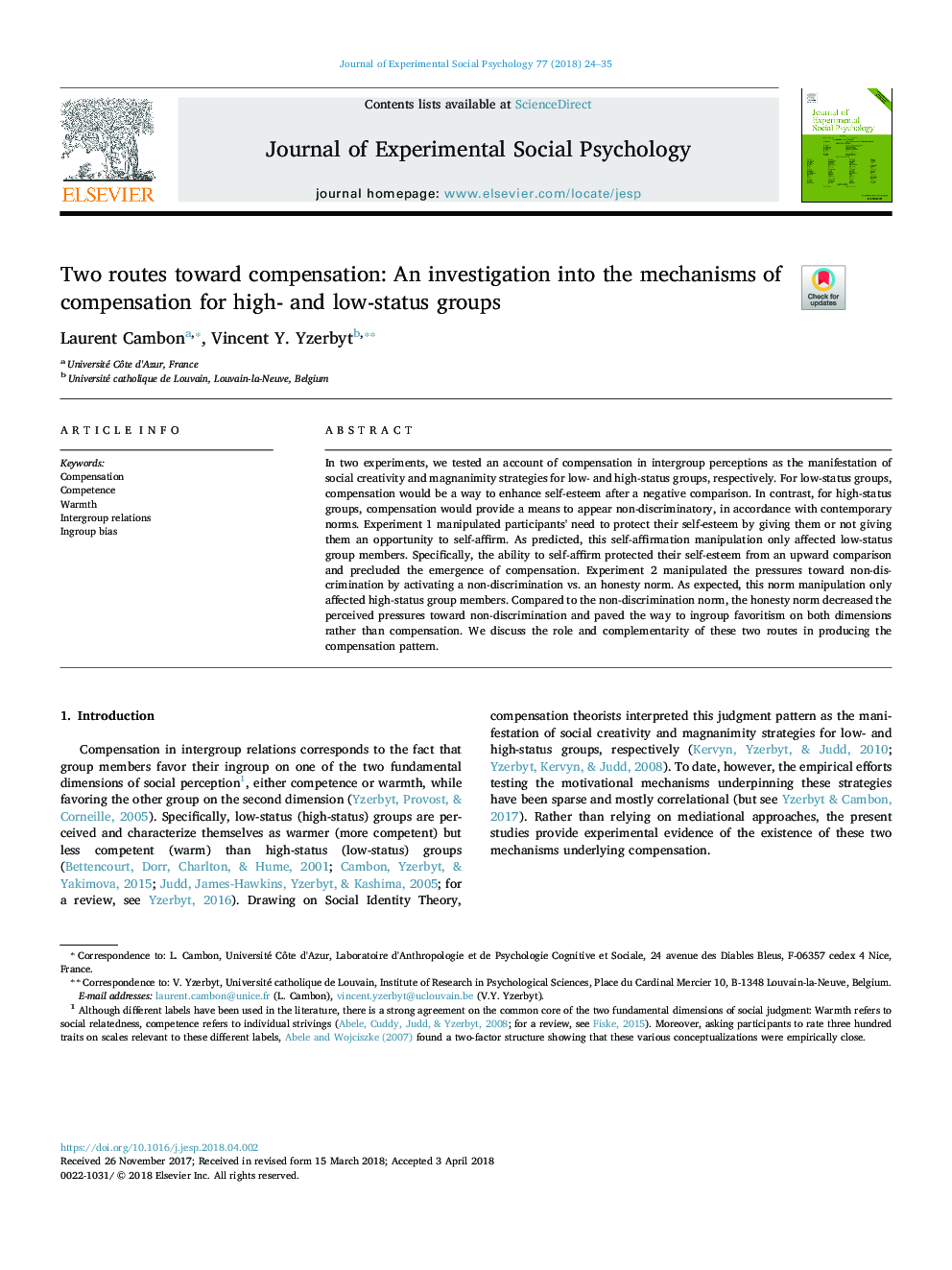| Article ID | Journal | Published Year | Pages | File Type |
|---|---|---|---|---|
| 7324015 | Journal of Experimental Social Psychology | 2018 | 12 Pages |
Abstract
In two experiments, we tested an account of compensation in intergroup perceptions as the manifestation of social creativity and magnanimity strategies for low- and high-status groups, respectively. For low-status groups, compensation would be a way to enhance self-esteem after a negative comparison. In contrast, for high-status groups, compensation would provide a means to appear non-discriminatory, in accordance with contemporary norms. Experiment 1 manipulated participants' need to protect their self-esteem by giving them or not giving them an opportunity to self-affirm. As predicted, this self-affirmation manipulation only affected low-status group members. Specifically, the ability to self-affirm protected their self-esteem from an upward comparison and precluded the emergence of compensation. Experiment 2 manipulated the pressures toward non-discrimination by activating a non-discrimination vs. an honesty norm. As expected, this norm manipulation only affected high-status group members. Compared to the non-discrimination norm, the honesty norm decreased the perceived pressures toward non-discrimination and paved the way to ingroup favoritism on both dimensions rather than compensation. We discuss the role and complementarity of these two routes in producing the compensation pattern.
Related Topics
Life Sciences
Neuroscience
Behavioral Neuroscience
Authors
Laurent Cambon, Vincent Y. Yzerbyt,
